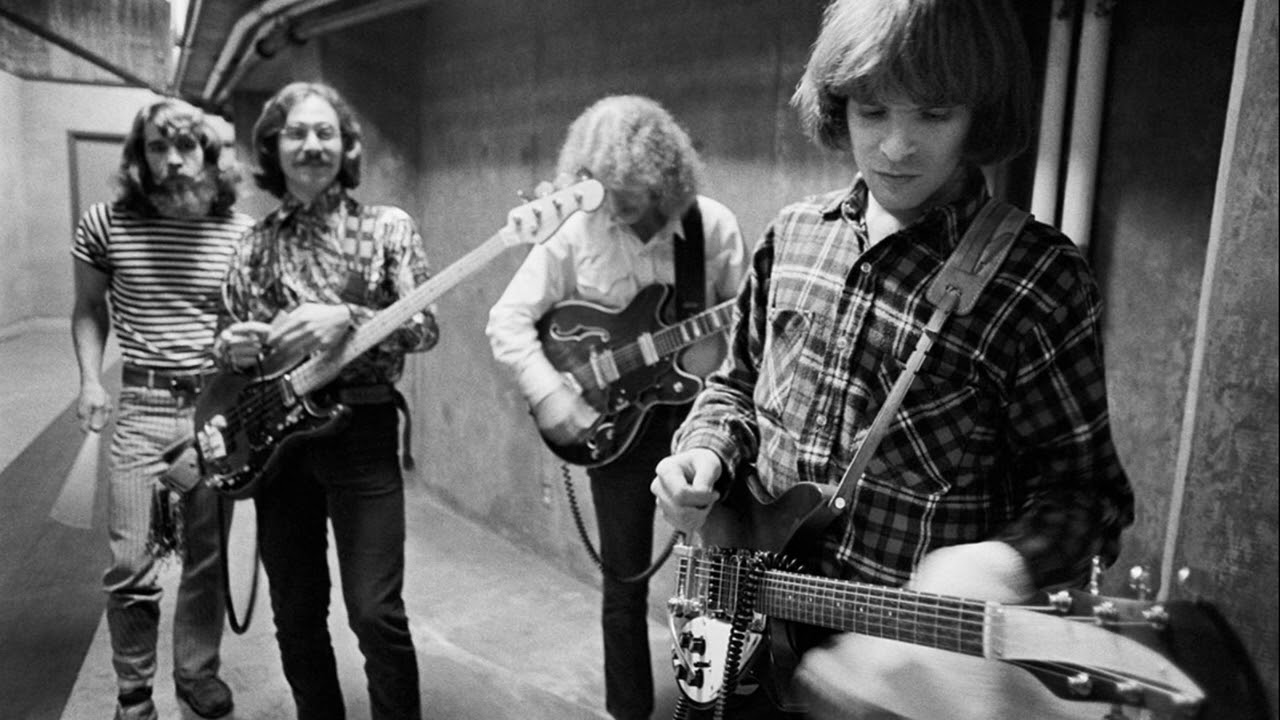
“Gloomy” is a small, sharp mirror: it watches ordinary people turn suspicious, hardened, and half-afraid—until even conversation feels like a trap.
The most important thing to know right away is that “Gloomy” was never meant to be a headline single. It’s a deep album cut—quietly placed on side two of Creedence Clearwater Revival (the self-titled 1968 debut), released by Fantasy Records in June 1968. And yet, in its three-and-change minutes, it carries a weight that feels almost prophetic: a portrait of a world where people count your money, count your days, and “keep track of your mind,” until the very air seems tinted with distrust.
On the record, “Gloomy” sits as side two, track four, credited to John Fogerty, running 3:48. It was recorded at Coast Recorders in San Francisco, with session data pointing to February 1968 for the track’s recording, and credits naming Saul Zaentz as producer on that specific recording while Fogerty dominated the band’s creative direction across the era. This is the CCR story in miniature: tight, efficient, built like a tool you can trust—made by a band that didn’t need psychedelic fog machines to sound ominous.
Because it wasn’t released as a single, “Gloomy” has no debut chart position of its own. That absence is part of its personality: it’s the song you discover after the “hits,” the one that feels like it’s been waiting in the room for you. To understand the chart moment around it, you look at the album and the singles orbiting it. The album itself reached No. 52 on the US Billboard 200, a modest beginning that, in hindsight, looks like the first turn of a very fast wheel. The breakout was “Susie Q”, which the debut LP carried into the wider world and which climbed to No. 11 in the US. Even the follow-up cover, “I Put a Spell on You,” cracked the US chart, peaking at No. 58. So while “Gloomy” didn’t chart, it was born inside a record that had begun to pull CCR out of the clubs and into the national bloodstream.
The backstory that matters most is the band’s transformation. Before they were Creedence Clearwater Revival, they’d spent years recording and releasing singles under the name the Golliwogs. In 1967, Saul Zaentz bought Fantasy Records and offered them the chance to make a full album—on the condition they change their name. They agreed, leaving behind the old identity and stepping into the leaner, tougher silhouette of CCR. That kind of forced reinvention—equal parts opportunity and compromise—hangs in the background of “Gloomy.” It’s the sound of people learning, quickly, that the world is not sentimental.
Listen to the lyric images and you can feel Fogerty turning everyday behavior into something faintly menacing: people laughing in the dark, crying alone, talking without saying anything. Then the lines sharpen—money counted, days counted, minds “kept track of.” The song doesn’t need to declare a villain; it suggests a whole system of watchful eyes. Even family, in Fogerty’s sketch, becomes complicated: “brothers’ll make you look sideways / fathers’ll make you look back.” And that final sting—having to “shoot” when you’re done talking—lands like a flinch. It can be read literally, but it doesn’t have to be: it’s also the feeling of being pushed into defense, into reaction, into survival mode.
What makes “Gloomy” especially haunting is how unromantic it is. CCR were never a band built on dreamy love songs; they specialized in scenes, pressures, weather, work, and consequence. Even on the debut, Fogerty was already carving out that worldview—writing originals like “The Working Man,” “Porterville,” and “Gloomy” while the band proved they could reshape older material into something urgent. And the music matches the message: it moves with that CCR economy—no wasted gestures, no indulgent solos—just a steady forward push, like a train that doesn’t slow down just because the scenery turned dark.
If you’re looking for “meaning,” “Gloomy” offers a blunt kind of wisdom: when a culture gets anxious, people begin auditing one another—money, time, thoughts, loyalties. The song doesn’t preach; it observes. And maybe that’s why it lingers. Hits can feel like photographs of their moment. “Gloomy” feels more like a shadow on the wall—something you notice later, when the room is quiet enough to hear what you missed the first time.